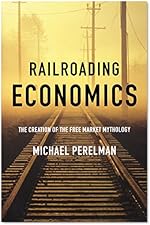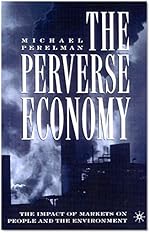The Matrix: The Intersection of War, Economic Theory, and the Economy
Vincent Portillio and I are hard at work putting together our new book provisionally entitled: The Matrix: The Intersection of War, Economic Theory, and the Economy. We are going to post the ms. on line as we go along. Here is our first installment, which will probably change in light of comments that you might make.
Thanks for your interest. I hope you enjoy it.
I have added a pdf version for those who prefer that format.

 25 – The Confiscation of American Prosperity: From Right-Wing Extremism and Economic Ideology to the Next Great Depression
25 – The Confiscation of American Prosperity: From Right-Wing Extremism and Economic Ideology to the Next Great Depression 30 – Manufacturing Discontent: The Trap of Individualism in Corporate Society
30 – Manufacturing Discontent: The Trap of Individualism in Corporate Society Class Warfare in the Information Age
Class Warfare in the Information Age Railroading Economics: The Creation of the Free Market Mythology
Railroading Economics: The Creation of the Free Market Mythology Steal This Idea: Intellectual Property Rights and the Corporate Confiscation of Creativity
Steal This Idea: Intellectual Property Rights and the Corporate Confiscation of Creativity The Invention of Capitalism: Classical Political Economy and the Secret History of Primitive Accumulation
The Invention of Capitalism: Classical Political Economy and the Secret History of Primitive Accumulation The Perverse Economy: The Impact of Markets on People and the Environment
The Perverse Economy: The Impact of Markets on People and the Environment
Dear Perelman,
Dear Vincent,
The text is very interesting and instigating. I would like to present only the following suggestion about the metaphor of the gravity.
I see two weaknesses in the metaphor of the gravity:
1) Gravity is a natural phenomenon, but war and economy are social constructions. It is impossible to avoid the natural phenomenon of gravity on earth, but is possible (and desirable) to avoid war, since we consider it a social construction.
2) Gravity is a physical phenomenon. It is absolutely predictable and can be precisely calculated. But, as you advocate in the text, the effects of war and economy can not be predicted and calculated.
Wishes
Rodrigo Moreno Marques
“Simulations
Jean Baudrillard
One of the most influential essays of the 20th century, Simulations was put together in 1983 in order to be published as the first little black book of Semiotext(e)’s new Foreign Agents Series. Baudrillard’s bewildering thesis, a bold extrapolation on Ferdinand de Saussure’s general theory of general linguistics, was in fact a clinical vision of contemporary consumer societies where signs don’t refer anymore to anything except themselves. They all are generated by the matrix.”
Jurriaan. Thank you very much. Do you like the revised version better.